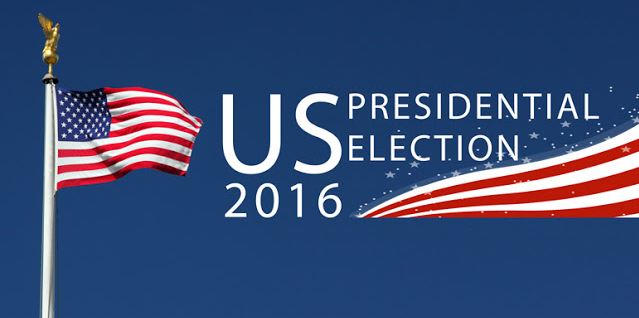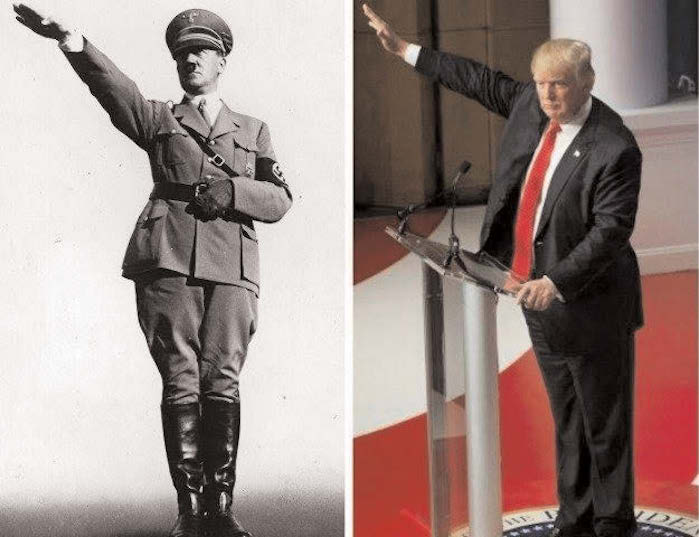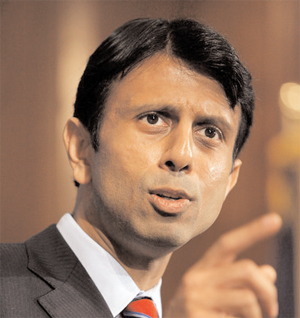
NEW YORK (TIP): Ten candidates, on Feb 9, chugged in to New Hampshire after the Iowa caucuses with hopes of success.
 Republican Donald Trump and Democrat Bernie Sanders have shaken up the US presidential race with decisive victories in the New Hampshire primary.
Republican Donald Trump and Democrat Bernie Sanders have shaken up the US presidential race with decisive victories in the New Hampshire primary.
Senator Bernie Sanders, who beat Democratic rival Hillary Clinton by a huge margin, said his victory showed people wanted “real change”.
Both candidates are riding on a wave of discontent with mainstream politics.
The aim of the primary race is to choose which candidates will represent the Republican and Democratic parties in November 2016 presidential election.
On Tuesday, Feb 9, Ohio Gov. John Kasich, whose aspirational conservative message contrasts with Trump’s populist rhetoric, surged to a surprise second place in the GOP race, with former Florida Governor Jeb Bush, Texas Senator Ted Cruz and Florida Senator Marco Rubio all vying for third place.
New Hampshire is the second state to choose delegates in the long nomination battle following last week’s Iowa caucuses, which were won by Mr. Cruz for the Republicans and Mrs. Clinton for the Democrats.
The result gives momentum to the winners ahead of the next contests in South Carolina and Nevada.
New Hampshire also delivered a painful personal blow to Hillary Clinton, who squeezed out the narrowest of victories in Iowa last week. The scale of her defeat – by more than 20 points -is likely to fuel signs of growing internal rancor in her campaign and complaints by Democrats that her message as a progressive who gets results is no match for Sanders’ heady demands for a political revolution, which has inspired younger Democratic voters.
The loss was especially rough because New Hampshire has long been kind to the Clintons. It’s the state that made Bill Clinton the “comeback kid” in 1992. And Hillary Clinton beat Barack Obama there in 2008, salvaging her campaign after a third-place showing in Iowa.
 Trump, relishing a victory that restored luster to his claim to be one of life’s perpetual winners, which lost some sheen after his second in Iowa, took to the stage at his victory party with a beaming smile and a thumbs-up after defying doubters who had questioned whether he can turn stellar poll numbers into actual votes.
Trump, relishing a victory that restored luster to his claim to be one of life’s perpetual winners, which lost some sheen after his second in Iowa, took to the stage at his victory party with a beaming smile and a thumbs-up after defying doubters who had questioned whether he can turn stellar poll numbers into actual votes.
“Wow, wow, wow,” Trump said. “We are going to make America great again!”
He spoke in unusually personal terms about his family during his acceptance speech.
Despite a “huge” win in New Hampshire on Tuesday and a second-place finish in Iowa last week, Donald Trump doesn’t have enough support to be anointed anything and faces an uphill battle in the race for his party’s nomination, political experts say.
While Trump got 35% support among Granite State Republicans, more than 60% of them voted against the real estate mogul, spreading their backing among a splintered slate of six mostly establishment candidates and sending a message that most GOPers don’t in fact like The Donald.
What’s next in election 2016: Dates for primaries, caucuses
Eleven states have open primaries in which all registered voters may vote in the primaries. Voters not enrolled in a political party in most of these states may vote in either the Republican or Democratic primaries. Unlike most open primary states, New Hampshire does not allow Republicans to vote in the Democratic primary or Democrats to vote in the Republican primary.
Eleven states have closed primaries, which means a voter can vote only for a candidate in his or her party. The other states have either hybrids or caucuses.
Most states send delegates to the convention that proportionally reflect the popular vote of each candidate in a caucus or primary. For example, if a presidential candidate won 60 percent of the primary vote or 60 percent of delegates in a caucus vote, he or she would be assured six out of every 10 delegates from that state.
A few states adopt a winner-takes-all process in which the top candidate gains the automatic support of all delegates.
But not all delegates are obligated to support a specific candidate at the national convention based on the popular vote. Those rules vary by state. In Iowa, for example, all delegates are unpledged.
Many states also have “superdelegates” who are uncommitted and are often elected officials.
Following is the schedule of party primaries and caucuses in states and American territories
Feb. 11 – Democratic debate in Milwaukee, Wisconsin Feb. 13 – GOP debate in Greenville, South Carolina Feb. 20 – South Carolina Republican primary
Feb. 20 – Democratic caucuses in Nevada
Feb. 23 – GOP caucuses in Nevada
Feb. 25 – GOP debate in Houston, Texas
Feb. 27 – South Carolina Democratic primary
March 1 – Super Tuesday
Alabama Primary
Alaska Republican Caucus
American Samoa Democratic Caucus
Arkansas Primary
Colorado Democratic Caucus
Georgia Primary
Massachusetts Primary
Minnesota Caucus
Oklahoma Primary
Tennessee Primary
Texas Primary
Vermont Primary
Virginia Primary
Wyoming Republican Caucus
March 5
Kentucky Republican Caucus
Kansas Caucus
Louisiana Primary
Maine Republican Caucus
Nebraska Democratic Caucus
March 6
Maine Democratic Caucus
Puerto Rico Republican Primary
March 8
Hawaii Republican Caucus
Idaho Republican Primary
Michigan Primary
Mississippi Primary
March 9 – Democratic debate in Miami, Florida March 10 – GOP debate in Miami, Florida
March 12
District of Columbia Republican Caucus
Northern Mariana Islands Democratic Caucus March 15
Florida Primary
Illinois Primary
Missouri Primary
North Carolina Primary
Northern Mariana Islands Republican Caucus
Ohio Primary
March 19 – Virgin Islands Republican Caucus
March 22
Arizona Primary
Idaho Democratic Caucus
Utah Primary
March 26
Alaska Democratic Primary
Hawaii Democratic Primary
Washington Democratic Caucus
April 5 – Wisconsin Primary
April 9 – Wyoming Democratic Primary
April 19 – New York Primary
April 26
Connecticut Primary
Delaware Primary
Maryland Primary
Pennsylvania Primary
Rhode Island Primary
May 3 – Indiana Primary
May 7 – Guam Democratic Primary
May 10
Nebraska Republican Primary
West Virginia Primary
May 17
Kentucky Democratic Primary
Oregon Primary
May 24 – Washington Republican Primary
June 4 – Virgin Islands Democratic Caucus
June 5 – Puerto Rico Democratic Caucus
June 7
California Primary
Montana Primary
New Jersey Primary
New Mexico Primary
North Dakota Democratic Caucus
South Dakota Primary
June 14
District of Columbia Democratic Primary
July 18-21 – GOP National Convention
July 25-28 – Democratic National Convention
Sept. 26 – First Presidential debate
Oct. 4 – Vice Presidential debate
Oct. 9 – Second presidential debate
Oct. 19 – Third presidential debate
Nov. 8 Election Day





Be the first to comment